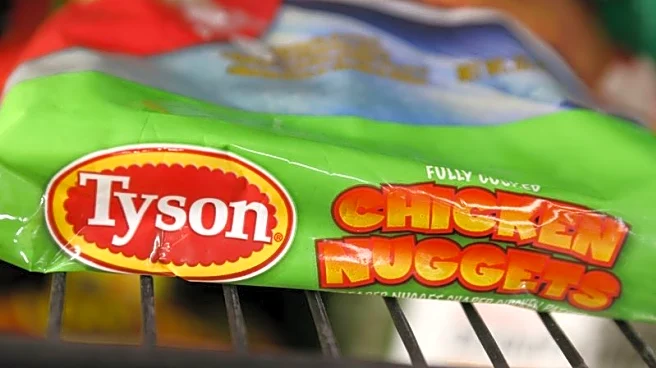By Tom Polansek
CHICAGO (Reuters) -Tyson Foods has agreed to stop saying it will reach net-zero greenhouse gas emissions by 2050 and marketing beef as climate friendly to settle a lawsuit that accused the
U.S. meat company of misleading consumers with the claims, the nonprofit Environmental Working Group said on Monday.
Companies have faced a string of cases over allegations of "greenwashing," in which they try to present an environmentally responsible image to the public.
Examples of misleading advertising cited in the Environmental Working Group's lawsuit included a Tyson brand called Brazen Beef.
The company had said this was the first beef product to receive U.S. Department of Agriculture approval for a "climate-friendly" claim by showing a 10% reduction in greenhouse gas emissions during the production process, compared to other beef.
The 2024 lawsuit alleged that Tyson gave consumers the misleading impression that available Tyson beef products were "climate-smart" and had not presented a rigorous plan for reaching its net-zero goals.
Tyson will not repeat the claims or introduce new ones for five years unless they are verified by a mutually agreed upon expert, according to a settlement agreement provided by Environmental Working Group.
"This settlement reinforces the principle that consumers deserve honesty and accountability from the corporations shaping our food system," said Caroline Leary, the group's general counsel and chief operating officer.
"The decision to settle was made solely to avoid the expense and distraction of ongoing litigation and does not represent any admission of wrongdoing by Tyson Foods," a company spokesperson said.
The agreement said Tyson denied the group's allegations and also said the company invested more than $65 million to reduce greenhouse gas emissions relating to its beef products.
This month, New York state Attorney General Letitia James said meatpacker JBS USA agreed to pay $1.1 million to settle allegations it misled the public with a pledge to achieve net zero emissions by 2040.
In October, a French court said oil major TotalEnergies misled consumers in a 2021 ad campaign claiming it could become carbon neutral by 2050.
(Reporting by Tom Polansek; Editing by Will Dunham)









